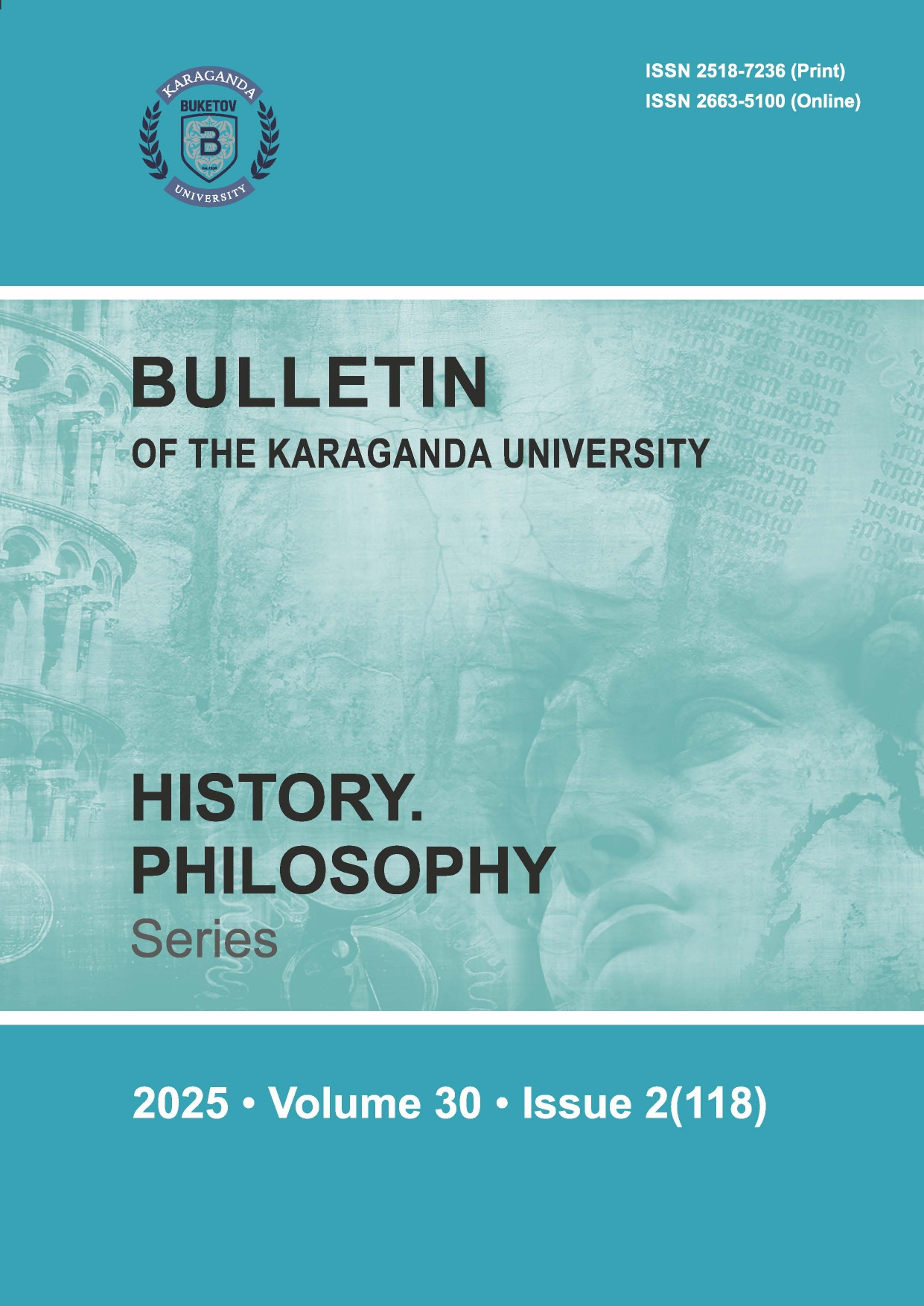Идея судьбы и свободы воли в истории античной и средневековой философии
DOI:
https://doi.org/10.31489/2025hph2/222-230Keywords:
fate, freedom, free will, God, goodness, logos, Мind-DemiurgeAbstract
The article examines various perspectives on the idea of fate and free will in the history of ancient andmedieval philosophy, as well as provides a historical-philosophical analysis of the problem of fate. Theauthor considers fate as an order defined by essence and emphasizes that it always exists as a unique form ofbeing, uniting subjectivity and objectivity. The article concludes that, regardless of the specific historicalvariations in understanding the problem of fate, it can be noted that depending on the degree of freedom aperson has in their world, either an objectivist or subjectivist concept predominated. The reflexive analysis ofancient philosophy is proposed in the context of considering fate as the necessity of cosmic processes and thefoundations of order and organization, while the reflexive analysis of the Middle Ages is suggested in thecontext of studying human spiritual salvation, that is, soteriology, as an important philosophical and religiousdoctrine of Christianity. Ancient Greek philosophy emphasizes how a person can act within the framework ofnatural and cosmic laws, while medieval philosophy links human fate with God’s plan and moralresponsibility. The author demonstrates that in both of these approaches, it is important to preserve humanfree will, giving him the opportunity to choose his path despite external or internal limitations. By showingthat the concept of fate became a certain stage in the formation of the concept of causality, the authorattempts to demonstrate that the understanding of fate opened new cognitive possibilities, and its outcomebecame the cause of the formation of rational thinking.




